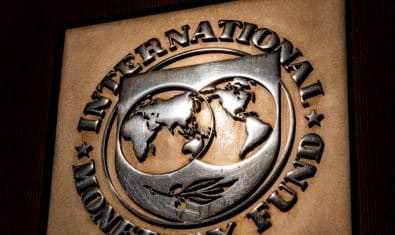As coronavirus becomes a growing global concern with the World Health Organization declaring it a public health emergency, the outbreak has begun to worry Pakistanis too.
Especially after some reports of Pakistan’s first suspected coronavirus case making rounds on traditional and digital media last week (which were dismissed later as being inaccurate), tensions are soaring just like the numbers of the people testing positive for the disease the world over.
But to what extent do we need to worry? What is our level of preparedness if we are faced with a crisis? And what are the precautions that we must start taking to prevent it from taking a bad shape?
In this article, we will try to answer all these questions.
Coronavirus – Should We Be Concerned?
The plain answer is yes. Not to the extent of panic, but only to remain and keep our loved ones safe. The good thing is that as of now, there hasn’t been a single confirmed case of coronavirus in Pakistan, as also attested Dr. Zafar Mirza, Special Assistant to Prime Minister on Health, a few days ago. Those who were suspected of having the virus showed no serious symptoms and responded well to treatment, the official statement said.
So, by the looks of it, we don’t have a reason to be anxious, but prevention wouldn’t hurt anyway.
How Prepared Are We to Tackle It?
Apparently, we have all things under control but, in all honesty, only time can be the true judge of our preparedness in the face of a true outbreak. The primary measures that we needed to take have been taken. The health ministry recently announced that Pakistan is now capable of diagnosing coronavirus with the recent acquisition of detection kits from Japan.
It also told yesterday that 194 health information booths were set up at various airports of the country to cope with the threat of coronavirus. If we are to take the official word for it, Pakistan has completed coronavirus clinical care and prevention guidelines in record time besides strengthening its surveillance, quarantine, and case management systems.
What Precautions Should We Take?
The World Health Organization has issued recommendations for the general public to prevent and contain the disease. Some of these include:
- Frequent handwashing with soap or alcohol-based hand rub
- Use of elbow or tissue while sneezing
- Avoidance of close contact with persons showing symptoms
- Avoidance of unprotected contact with live animals
- Avoidance and careful handling of raw or undercooked animal products
- Staying at home when sick
Can We Travel?
With necessary precautions, yes. Although CDC recommends that travelers avoid nonessential travel to China, Pakistan has resumed flight operations to the virus-hit country after briefly halting flights to and from China on Friday. If you must travel to China, or other virus-hit countries for that matter, you must:
- Avoid contact with people showing symptoms
- Avoid animals, both alive and dead
- Wash hands immediately after coughing or sneezing
- Seek medical advice if you were in China in the last two weeks and feel sick
To read the complete CDC travel advisory to China, Click here: https://wwwnc.cdc.gov/travel/notices/warning/novel-coronavirus-china
How Does the Virus Spread?
The new coronavirus spreads from person to person, similar to how influenza and other respiratory pathogens spread. As opposed to most respiratory viruses that are thought to be most contagious when they are most symptomatic in people, this new coronavirus – named 2019-nCoV – is reported to have spread from infected people who showed no symptoms.
This makes it even harder to detect and keep safe from. Still, there’s little that we know about the virus and its transmissibility, severity, and other features and the investigations are underway.
Where Did It Come From?
If you remember the 2011 movie Contagion, you have the answer. Health experts postulate that it may have, just like the movie’s MEV-1, originated in bats and then passed on to humans, possibly via other animal species (it was the pigs in Contagion). Expert opinion also hints at the virus being born last year in Chinese city Wuhan’s food market illegally selling live animals. Reaching a definitive source of origin will help the scientific community do its best to prevent such an outbreak in the future.
Is the Virus Fatal?
Identified as 2019-nCoV by scientists, the virus is from the same family that causes mild respiratory diseases such as the common cold. It must be noted that the virus is NOT fatal and only 2% of cases have reported deaths, most of which were associated with weaker immune systems (e.g. old age). More dangerous than the virus, however, is the misinformation about this, or any other disease.
What Are the Symptoms of Coronavirus?
The most common signs and symptoms of coronavirus include:
- Fever
- Cough
- Difficulty breathing
- Sore throat
Risk factors are still being discovered with people who are in their old ages and/or with poor medical conditions apparently being at higher risk for severe illness.
Is There Any Cure or Medicine to Prevent Coronavirus?
According to WHO, there’s no specific medicine recommended to prevent or treat 2019-nCoV. However, it is recommended that infected people get appropriate care to relieve symptoms while the body fights the virus on its own and builds immunity against it. Some specific treatments, however, are under investigation and have shown promising results but clinical trials and approvals might take their due course.


























